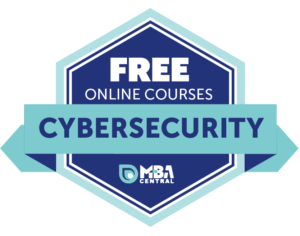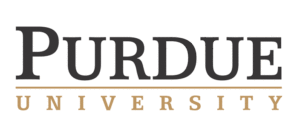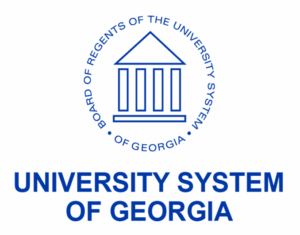
Although a standalone agency within the U.S. federal government, the Cybersecurity & Infrastructure Security Agency (CISA) is under the Department of Homeland Security oversight. CISA states that cybersecurity involves protecting networks, devices, and data from criminal mischief. This data might include things like credit cards used when shopping online. Much of modern society revolves around the internet, which means many aspects of life revolve around the digital world. People communicate through smartphones, watch videos on their phones, use navigation systems in their vehicles, and store their medical records electronically. Unfortunately, many entities in the world attempting to gain access to this private information through nefarious means and with ill intent. This means that the world of cybersecurity needs experienced and educated professionals to protect our critical data. One easy way to pursue education and proficiency in this important field is by pursuing a free online cybersecurity course.
Free Online Cybersecurity Courses
A student pursuing free online cybersecurity courses gains crucial skills, according to a U.S. News article. Students will gain relevant background knowledge of the laws and ethics relating to cybersecurity. Additionally, students will hone critical thinking skills. This knowledge and the skills gained through free online cybersecurity courses allow one to better identify and stop and mitigate cyber-attacks.
Cybersecurity is essential to individuals and organizations. Those without adequate cybersecurity are exposing themselves to many potential sources of harm. Hackers can break into a system and alter crucial files. They can use someone else’s computer(s) to launch attacks on others and obtain private credit card information. They can overwhelm vital infrastructure networks through DDoS attacks. A system without property security measures in place is practically inviting trouble to come in and cause havoc.
Skills needed to pursue and identify these attacks effectively require constant updating to stay abreast of new trends and techniques. Regardless of the degree earned or the number of credits one has under his belt, effectiveness in cybersecurity requires continuous lifelong learning. Free online cybersecurity classes make this constant need for education a much more practical and affordable prospect.
Methodology
The methodology used to determine which free online cybersecurity courses are most appropriate for this list consists of locating free upper-level classes on leading MOOC websites. The websites utilized include Coursera and edX. Class selection is further honed based upon affiliation with the country’s top business schools.
#1 Big Data – Purdue University
Big Data for Reliability and Security is a free online cybersecurity course. This intermediate-level course, geared toward Masters and Ph.D. students, recognizes that with the growth and increased reliance on big data come increased risks of attacks and failures in protecting the information. Students of this free online cybersecurity class learn theory relevant to today. Platforms utilized include Apache Spark, Flink, and Mesos. Throughout five weeks, students will participate in 15 hours of lecture and lab material. Big data may mean many different things to many different people. It’s kind of scary to some in that it’s so overwhelming that it can flood them with information like a tsunami. Others might view big data as the same old data that marketers utilized for years with a spicier name. While there may be ambiguity as to a hard and fast definition of big data, Lisa Arthur takes a stab at simplifying a description for Forbes. She says that big data, sourced both traditionally and digitally, is utilized to discover and analyze. How is big data useful? Forbes again steps up to the plate and offers five benefits that big data offers. The first benefit is getting new customers and keeping them. Next, it allows a better focus for campaigns. Another advantage is that it helps to identify risks. Additionally, big data aids in producing innovative products. Lastly, it allows suppliers to be more successful through increased contextual intelligence. Harvard Business Review talks about some of the potential risks that might result from all of this data falling into the wrong hands. In addition to the more obvious hazards, such as credit card theft, criminals use data to affect critical systems. Some of these scenarios may cause life-threatening situations.
This free online cybersecurity class is available from Purdue University, host to the Krannert School of Management. This business school, ranked by U.S. News at #80, offers an online MBA program and is fully accredited through the AACSB. Purdue provides a vast array of additional free online courses through edX that cover topics such as engineering, physics, and the U.S. Government.
Course Name: Big Data for Reliability and Security
Business School: Krannert School of Management
#2 Cloud Security – University of Minnesota
What is the cloud, and what makes it different from storing information on a computer hard drive? Students will acquire valuable beginner-level details in this free online cybersecurity class titled Cloud Security Basics. This class discusses security issues with today’s cloud environment and how to mitigate these vulnerabilities through tried and true strategies. Students will create case studies involving cloud environments and ascertain the best ways to secure them. They will utilize basic concepts like Least Privilege and Separation of Duty and more technical ones such as cryptographic and access control techniques. This four-week free online cybersecurity course requires a commitment of 13 hours. McAffee, a well-known name in computer security, defines cloud security as the process of keeping cloud environments safe against internal and external threats. McAffee emphasizes how crucial this is in a society where cloud technology is integrated into many of today’s systems, from the individual to government use. The Federal Trade Commission likens the cloud to a literal cloud. On the one hand, it can be a soothing and billowy cotton comfort. However, like a cloud, it can contain a dangerous storm, raging to damage whatever gets in the way. Cloud computing is more and more common, and this is a cause of concern. The news carrying stories of massive breaches is a regular occurrence, and data floating around in the ether needs to be protected.
The University of Minnesota is offering this class that is recognized as part of this article’s free online cybersecurity courses list. Minnesota’s respected Carlson School of Business is highlighted by U.S. News & World Report as the #28 business school in the country. In addition to an online MBA, this AACSB accredited university offers online leadership courses, learning development programs for organizations, and individual executive training courses. Through the Coursera platform, students will choose from a variety of content offered by the University of Minnesota. These other offerings include free online classes in Information Systems, Software Testing and Automation, and IT Infrastructure and Emerging Trends. More traditional business classes available for free include Human Resource Management, Analysis for Business Systems, and Creative Problem Solving.
Course Name: Cloud Security Basics
Business School: Carlson School of Management
#3 Cryptography – Stanford University
As the Navajo code talkers of WWII protected vital information relayed by the allied troops, modern cryptography is crucial for protecting computer systems information. Students who choose to take this free online cybersecurity course titled Cryptography I will need to set aside about 23 hours over seven weeks. They will learn about the nuts-and-bolts of cryptography as it relates to the digital world. They will face real-world scenarios where cryptography must be incorporated, along with specific techniques. Fun projects are available for those students who want to get their feet wet and face challenging situations. Tulane University hosts an article explaining cryptography. Cryptography, at its core, is a process of taking information and concealing it in such a way as to hide its meaning from unauthorized parties. Its first recorded use goes back to 400 BC, where the Spartans used a cipher tool called the scytale to mask communications between military commanders. Modern-day cryptography applies this process to digital data and uses algorithms to conceal vital information from prying eyes. A business that deals with private information, such as credit cards and medical data, needs to use some cryptography. This sensitive data gets transferred around and must remain secure from prying eyes and imposters who make efforts to hijack it. For a business to operate with confidence, data integrity is a necessity.
Stanford University is home to this free online cybersecurity course that is hosted on Coursera. Stanford is accredited through the WASC Senior College and University Commission. Stanford’s Graduate School of Business is a top institution. Rated #1 in the country by U.S. News & World Report, this AACSB accredited institution offers a variety of programs. Full-time degrees include an MBA program, the Stanford MSx program, and a Ph.D. program. A host of additional executive education programs is available to professionals covering topics such as technology and operations, social impact, and design thinking. Many of these are available online. Some of these programs come with a hefty price tag, but Stanford offers many free of charge through Coursera, including additional free online cybersecurity classes such as Cryptography II.
Course Name: Cryptography I
Business School: Graduate School of Business
#4 Cyber Attacks – New York University
Real-Time Cyber Threat Detection and Mitigation is a free online cybersecurity course that is part of a four-part cybersecurity series. This four-week class begins with basic network security that includes firewall design and implementation. Next, it covers more advanced technologies such as packet filters, proxies, and firewall rule sets. The third week gets into the firewall architectures, detecting intruders, and SOC design. The last week introduces students to the limitations inherent in these methods when dealing with DDoS attacks and APT. Students will spend about 15 hours in this free online cybersecurity course. Ready.gov states that a cyber-attack involves a malicious actor attempting to access or damage a computer system. These actions often result in monetary loss, theft, and damage to reputation. This free online cybersecurity course on cyber attacks teaches students how to prevent, spot, and deal with these intrusions. These intrusions come from all over the place, including mobile phones, gaming systems, and computers. They target everyone from the children to the elderly and impact businesses, transportation systems, and even entire power grids. The U.S. government’s Small Business Innovation Research program (SBIR) writes of the effects these attacks have on small businesses. According to the article, about $445 billion in damages occur around the world each year due to cyber attacks. Fifty percent of small to midsize businesses are victims of these attacks, and more than 60% of those businesses that suffer from them go out of business. Often, these businesses aren’t even aware of the attack until it’s too late to do anything about it.
NYU makes this free online cybersecurity course available through Coursera. The university is home to the Leonard N. Stern School of Business that is accredited by the AACSB. Stern’s prestige is on full display in its #10 ranking by U.S. News & World Report. Available programs include its MBA, several master’s options, and more than forty executive learning programs. Stern offers students much. Additional free online cybersecurity courses from Stern on Coursera include topics ranging from an introduction to cyber attacks to infrastructure security.
Course Name: Real-Time Cyber Threat Detection and Mitigation
Business School: Leonard N. Stern School of Business
#5 Cybersecurity 101 – Rochester Institute of Technology
In offering this free online cybersecurity course titled Cybersecurity Fundamentals, the Rochester Institute of Technology seeks to introduce students to the basic principles of cybersecurity. Students will become familiar with the different areas involved, the tools needed, and the issues that must be faced. This intensive course requires about 12 hours a week for eight weeks and is a part of a MicroMasters program in cybersecurity. Cybersecurity, like its name implies, is a protective service. Defending users, whether individuals or corporations, cybersecurity offers a line of defense. Systems, networks, and programs are on one side, and digital attacks come from the other side. These attacks typically attempt to gain access, manipulate information, extort money, or cause chaos. One cannot overstate the importance of cybersecurity and free online cybersecurity classes like this one. There are legitimate threats out there, and people have many digital devices utilized for both work and personal use. Major infrastructure like power plants, hospitals, and financial service companies face the danger of interruption and data manipulation. Without these vital providers, society and business can’t operate at peak efficiency. Threats may take many forms. Some of the most common cybersecurity attacks come through phishing, ransomware, malware, and social engineering.
The Rochester Institute of Technology’s free online cybersecurity course is one of many offerings from the institution. Rochester’s Saunders College of Business solidifies its credentials through its AACSB accreditation. Students can gain access to various valuable programs through this business school, recognized by U.S. News & World Report as the #89 business school in the country. Not only will Rochester students have an opportunity to participate in U.S News’ #28 ranked online MBA program, but they have access to many career-advancing and launching programs. A variety of master’s degrees are available and include a Business Analytics, Hospitality and Tourism, Leadership and Innovation, and Technology Innovation Management & Entrepreneurship. Host to additional free online cybersecurity classes such as Computer Forensics, Cybersecurity Risk Management, Network Security, and a Cybersecurity Capstone, RIT offers many other free online pursuits. Enrichment awaits in Design Thinking, Project Management, Communication Skills, and World Religions Through Their Scriptures.
Course Name: Cybersecurity Fundamentals
Business School: Saunders College of Business
#6 Cybersecurity and Mobility – University System of Georgia
Part of a specialization in cybersecurity, this free online cybersecurity course is titled Cybersecurity and Mobility. Recognizing the proliferation of hackers and plain old human error, this course seeks to first inform students about the innovations in information technology. With these rapid innovations is the demand for a new way to approach security. Cell phones, for example, bypass more traditional measures geared toward a PC. This free online cybersecurity class familiarizes students with more up-to-date multi-dimensional and tiered approaches to better safeguard security in this ever-changing environment. Over four weeks and about 14 hours, students are exposed to interviews with industry experts and the background information needed to appreciate this environment better and take on a leadership role in meeting the challenges faced. The NIST published a paper dealing with these cybersecurity and mobility challenges. Mobile access is becoming more prevalent than PC access. The world is evolving, if it hasn’t already, into a mobile world. Data is moving into the cloud, and security must adapt to that. Specialized apps and procedures must be geared and adapted toward this reality. Deloitte Insights provides an even more expanded view of cybersecurity and mobility by delving into the automated vehicles. Many of the issues mentioned in this article apply to other mobility areas. Connected devices are continually collecting user data. This data is susceptible to hackers. Hackers may also take control of devices and use them for their means. Many of the tools today, from refrigerators to voice assistants, are now part of the cyber world through mobility.
The University System of Georgia is composed of many schools. Among these institutions along with their business schools is the University of West Georgia and its Richards College of Business, Valdosta State University and its Harley Langdale, Jr. College of Business Administration, Georgia Southern University and its Parker College of Business, and Kennesaw State University along with its Coles College of Business. In addition to nearly fifty other free online classes, the University of Georgia System offers other free online cybersecurity classes like Cybersecurity and the Internet of Things and Cybersecurity and the X-Factor.
Course Name: Cybersecurity and Mobility
#7 Global Cybersecurity – State University of New York
The seventh course listed in this series of free online cybersecurity classes is titled International Cyber Conflicts. Students walk away with the knowledge needed to analyze and manage global cyber incidents. Three areas of focus will aid in the development of an interdisciplinary perspective. These areas include the characteristics of cyber threats, global efforts used to manage cybersecurity, and psychological and sociopolitical factors relevant to international efforts. Consisting of lectures and application, this free online cybersecurity course takes five weeks and about ten hours to complete. Global Cyber Security is a big issue, affecting countries all over the world. Maryville University hosts a blog article titled Understanding Global Cyber Security. The article cites that cyber attacks are among the top three threats that modern businesses face, and almost two-thirds of companies feel that they are not prepared to meet them. Levels of preparedness vary drastically around the world. Countries such as Brazil are on the low end of the scale and are highly susceptible to attack. The other end of the spectrum is illustrated by Germany, where one of the critical susceptibilities to cyberattacks, peer-to-peer downloading, is avoided by almost 90% of companies. An issue that impacts all countries worldwide is the lack of skilled individuals to combat cybersecurity issues. Ninety-Two percent of global business owners believe they will have difficulty finding qualified candidates in this area. All this serves to point out that while most countries are aware of the challenges they face in cybersecurity, they are somewhat powerless to do anything about it.
A free online cybersecurity course such as this one, offered by the State University of New York (SUNY), is a step in the right direction. Many business schools and universities are located within the SUNY system. Some of these, ranked by U.S. News & World Report, include the following: Binghamton University’s School of Management ranks #99-131, the University of Buffalo’s School of Management is ranked #60, the University of Albany’s School of Business comes ranks #99-131, and SUNY Oswego and SUNY Polytechnic Institute ranks #54 and #95 respectively.
Course Name: International Cyber Conflicts
#8 Hacking – University of Colorado System
Students have the opportunity to take a free online cybersecurity class titled Hacking and Patching. It’s important to point out that this intermediate-level course includes some complex skills beyond the typical student. In simple terms, this fourteen-hour free online cybersecurity class teaches students how to hack various systems with specific vulnerabilities. Once they learn how to attack, students then learn how to defend against the attacks. This course is part three in a four-part series on computer network security fundamentals, and it takes place over four weeks. ECPI University explains the evolution of the term hacking. It originated back in the 1950s at MIT. The term referred to one who had a knack for creative problem-solving. A hacker wasn’t a bad guy in any shape or form. He was quite the opposite. However, like many words, the definition began to change as time passed. By 1975, a hacker, mostly a positive term, included a definition about one who is up to no good. The current meaning, entirely negative, basically refers to a bad person. The more correct term for this negative description is a “cracker,” which has its own vast array of meanings. Hackers or crackers, whatever one’s preference, poke around in a system to obtain sensitive information. The Chronicle states that hacking often has severe consequences for a business. Often resulting in data theft and sometimes in outright sabotage, it can mean a considerable loss of competitive advantage for a company. Legal consequences may result from customers.
Several schools comprise the University of Colorado System, which offers this free online cybersecurity course. The Leeds School of Business, accredited by the AACSB and ranked #70 by U.S. News, is part of the University of Colorado Boulder. The College of Business at the University of Colorado, also accredited by the AACSB, is ranked #99-131 by U.S. News. Additionally, the Business School at the University of Colorado Denver is also accredited through the AACSB. The Colorado Springs branch and the Denver branch each offer online MBA programs. Colorado Springs’ online MBA is ranked #80 by U.S. News.
Course Name: Hacking and Patching
#9 Hardware – University of Maryland, College Park
Hardware Security, a free online cybersecurity course, is part of a cybersecurity specialization. This seven-week course requires about twelve hours of combined videos, reading, quizzes, and a final exam. Students of this free online cybersecurity class learn about current system weaknesses and the physical assaults that constantly bombard them. Approaching security from a hardware perspective, students learn about the tools and skills needed to create secure and trustworthy hardware. Forbes interviewed Ken Xie, CEO and founder of Fortinet. Xie makes a case for the increasing importance of hardware when it comes to keeping systems safe. He points out a key statistic in the growing expense of IT. The financial commitment has recently grown more than 300% in just the last few years, and Xie believes that soon it will account for 20-40% of IT spending. This tremendous increase in cost demonstrates the importance of a free online cybersecurity class that delves into the area of hardware. Hardware will significantly improve the performance of security efforts, and it will do so much more efficiently. Citing a Google study, Xie points out that performance can be enhanced by 10-100 times over software-based solutions. One area of particular import is the cloud. This area is currently growing and doesn’t have as much cost associated with it. However, with its continued growth, the need for improved security will increase. Companies that incorporate appropriate hardware into their cloud systems will be ahead of the curve and have a significant advantage over the competition.
With this free online cybersecurity class, part four of a five-part cybersecurity specialization, the University of Maryland, College Park prepares students for the next cybersecurity evolution. Maryland’s Robert H. Smith School of Business is a well-respected source of learning. Fully accredited through the AACSB, the Smith School of Business is highly ranked by U.S. News at #44. Additionally, U.S. News recognizes the Smith School’s online MBA as the #10 best in the U.S. In addition to this free course, students can access free online cybersecurity classes from the University of Maryland, College Park in Usable Security, Software Security, Cryptography, and a Cybersecurity Capstone Project.
Course Name: Hardware Security
Business School: Robert H. Smith School of Business
#10 Information Security – University of California, Davis
As part of a four-part specialization in secure coding practices, this free online cybersecurity course titled Identifying Security Vulnerabilities requires around 13 hours over four weeks. This intermediate-level class gives students strong building blocks for secure programming. It covers areas such as threat modeling and cryptography. Not only will students of this free online cybersecurity course learn to create threat models, but they will be able to analyze those created by others. Other topics covered include application authentication, session management, and data exposure. In addition to lectures, reading, and quizzes, students can learn through hands-on assignments such as exploiting vulnerabilities in a test web application called WebGoat. Drexel University states that information security covers a lot of ground. It consists of everything from documents sitting in a file cabinet next to one’s desk to sensitive data on a computer. Information security, such as the issues discussed in this free online cybersecurity class, is critical to modern society. A data breach can cripple a company and lead to its demise. It’s not so much if a lack of security will damage a company in today’s world, but when that lack of information security will take a toll.
This free online cybersecurity class is available through the University of California, Davis and Coursera. UC Davis’ Graduate School of Management is an AACSB accredited institution. In addition to MBA programs offered both on-campus and online, the Graduate School of Management provides additional degrees that include accounting, technology management, and business analytics. UC Davis also provides executive programs in partnership with GetSmarter and EduMind. These programs provide the opportunity to stay up-to-date on constantly changing practices and allow one to serve his organization best. The Graduate School of Management at UC Davis is recognized by U.S. News as the #48 best business school in the U.S. The School of Management has more than 75 internationally renowned faculty on staff and nearly 5,000 alumni representing various industries. UC Davis offers many other free classes in addition to this free online cybersecurity class. The free online courses include Spatial Data Analysis and Visualization, Computational Social Science, and Computational Social Science Methods.
Course Name: Identifying Security Vulnerabilities
Business School: Graduate School of Management
#11 Innovation – Indiana University
Geared toward a chief information officer (CIO) role, Digital Technology and Innovation is a free online cybersecurity class designed to aid in staying abreast of innovation. The course explains the value added by a competent CIO responsible for melding new technologies throughout a business organization. To pull this off, the CIO must be familiar with the available technologies as well as the new ones popping up. While continually cultivating this awareness of what is available, the CIO begins to incorporate these new technologies into the organization. Managing all phases from adoption through implementation, he keeps the organization’s machinery running as efficiently as possible, continuing to implement changes as new options become available. This intensive free online cybersecurity class requires about three months to complete, and one will typically spend eight to ten hours each week on various assignments. To aid in the appreciation of the impact of innovation, Forbes offers an article explaining how three waves of cybersecurity innovation are responsible for the current business state. Beginning with simple virus screening in the early days of the internet, where the only things worth guarding were academic papers and government servers, society is now full of connected devices, and sensitive data is all over the ether. Protection and efficiency in this third age is not only a good idea, but it is crucial to virtually all modern organizations. This free online cybersecurity class lays the groundwork for one with the desire to take a leadership role on the front lines.
Indiana University, credentialled through the Higher Learning Commission, offers students the opportunity to take this free online cybersecurity course through the edX platform. Indiana University’s Kelley School of Business stands apart from many business schools with its U.S. News & World Report ranking of #23. Additionally, U.S. News rates Kelley’s online MBA as #1 in the country. Besides offering many graduate degrees and executive education options through its impressive business school, IU provides students with a host of other courses on edX. They range from free online courses like accounting and digital ecosystem structure to full-blown master’s degrees in Accounting and IT Management.
Course Name: Digital Technology and Innovation
Business School: Kelley School of Business
#12 Internet – University of Michigan
Internet History, Technology, and Security is a free online cybersecurity course that delves into the modern connected world’s lifeblood, the internet. This fifteen-hour class is a beginning step on the ladder, leading to web design, programming, and network administration. It’s also an important course that gives any student a better appreciation for the internet and how it fits into modern lives. This free online cybersecurity class begins with how the internet came about over the past sixty years. Next, through the study of key parties involved, students learn about the innovators that helped launch it. Finally, the layers of the internet are peeled back to understand how it works. Students learn about internet architecture, security, and protocol suite along the way. According to Business Insider, the internet has grown exponentially from its first registered domain back in March of 1985. Currently, billions of people are online, with the average person spending three hours a day navigating the web on his mobile phone and six hours a day online at work. The internet is an integral part of people’s lives. However, with all of that connectedness, security vulnerabilities and challenges are also exponentially broader factors, which is why security and free online cybersecurity courses are so important.
The University of Michigan offers this class on the internet through Coursera. With its guiding principle found in the university’s motto, Artes, Scientia, Veritas, Michigan seeks to promote arts, knowledge, and truth for its third century. Michigan’s Stephen M. Ross School of Business, with full AACSB accreditation, proudly upholds the University’s status through its U.S. News & World Report ranking of #12. The Ross School of Business recognizes a business’s ability to make the world a better place and believes society will find the solution to world hardships such as poverty and pollution. With more than 130 free offerings on Coursera alone, the University of Michigan has something to provide even the most discerning student. With an additional free online cybersecurity class about securing digital democracy and web classes running from Python for everybody to data collection, Michigan is worth checking out.
Course Name: Internet History, Technology, and Security
Business School: Stephen M. Ross School of Business
#13 Leadership in Cybersecurity – University of Washington
As mentioned previously, cybersecurity efforts require a significant share of the budget, and this share is ever-increasing. As a result, cybersecurity requires management from the top. This free online cybersecurity class’s approach tackles the issue from the perspective of the Chief Information Security Officer (CISO). Students examine this role from multiple perspectives. Through the lens of private industry, academia, government, and military, they learn about the responsibilities of the CISO. These responsibilities primarily include how to safeguard data and digital systems for both employees and customers. The tools that CISOs use include policies, procedures, technologies, training, and audits. This free online cybersecurity class takes about six weeks to complete and ranges from 12 to 30 hours depending upon how one paces himself. Harvard Business Review speaks to this topic in an article concerned with the shortcomings of cybersecurity leadership. It points out that there exist two leading causes for these challenges. The first is that cybersecurity isn’t treated with appropriate importance, and the second is that those spearheading the efforts aren’t adequately equipped to exert influence. The articles suggest three areas that successful leaders must address:
- While there are certain commonalities in strategies, approaches must be customized to each business.
- The leadership must have the appropriate authority and political savvy to make things happen throughout the company.
- It takes the right kind of person to pull it all off.
While technical skills are undoubtedly critical, the primary focus should be on the potential leader’s mindset. The leader must successfully influence those around him in strategy, technology decisions, and risk management.
The UW offers this free online cybersecurity course through edX. Washington’s business school, the Michael G. Foster School of Business, is accredited by the AACSB. Additionally, this prized school of business is highly rated by U.S. News at #20. The Foster School of Business offers various graduate programs, among which is an online MBA ranked #10 by U.S. News. Additional free online cybersecurity classes offered through this University include Finding Your Cybersecurity Career Path, Building a Cybersecurity Toolkit, Essentials of Cybersecurity, and Introduction to Cybersecurity.
Business School: Michael G. Foster School of Business
#14 Network Security – Western Governors University
There is a lot of discussion about networks, and many people have some understanding of what they are. However, there are many types, and each comes with its challenges. Students who take this free online cybersecurity course learn about the different types of networks. These include the local area network (LAN), the enterprise network, campus area networks (CANs), virtual private networks (VPNs), and wide area networks (WANs). With the increase in interconnectivity, there is an increase in the challenge of keeping information safe from threats. Students learn about the weaknesses of different networks and ways to address them through basic security concepts. This self-paced course lasts about two months and requires students to contribute nine to ten hours per week. Cisco describes network security as ensuring the usability and integrity of a network and data. Several facets of protection fall under this umbrella of protection. It encompasses both hardware and software and confronts different types of threats. It attempts to stop threats from gaining entry. However, it also combats those that do slip by. This protection primarily limits access to authorized users and places barriers in front of those with nefarious purposes. Any business or individual that operates online to any degree faces challenges relating to network security. Many challenges are confronted, but ultimately two stand out. Network security protects sensitive information and reputation. This protection comes through various tools that include firewalls, email security, application security, data loss prevention, and wireless security.
Western Governors University, certified through the Northwest Commission on Colleges and Universities, contributes to students’ enlightenment through this free online cybersecurity class titled Network Security Foundations. Western Governors College of Business, with programs accredited through the ACBSP, serves its students through its MBA programs, Masters in Management and Leadership degree, Masters in Accounting degree, and several additional offerings. Founded by governors to make education more available to their constituents, WGU came to fruition with the internet’s availability in the mid-90s. This online university seeks to “do education differently” and make a college education available to anyone without regard to social or economic boundaries.
Course Name: Network and Security Foundations
Business School: College of Business
#15 Tech Law – Harvard University
CS50 is a free online cybersecurity course that teaches fundamental areas of computer science in a way that is geared toward lawyers and law students. The overall goal of this class is to aid students in understanding the legal implications of technology-related decisions. This ten-week course, requiring about six hours a week, seeks to give students the tools they need to formulate legal arguments and opinions. Computer languages such as Python are integrated into the curriculum in such a way as to allow students to seek out their answers through data mining. Specific topics covered include algorithms, privacy, and security. U.S. News offers a detailed description of technology law and what it entails. Practitioners in this field have an understanding of both technology and intellectual property. They involve themselves in specific IP protection strategies, open-source licensing, and diligence investigations. These specialized attorneys often play a critical role in creating new business models and must have a strong background in intellectual property and commercial law. The importance of tech law and a free online cybersecurity course covering this topic is illustrated through cases such as Apple v. FBI, where the FBI tried to force Apple to aid in the unlocking of private iPhones. While laws and regulations often serve as necessary protections for consumers, they sometimes impede innovation, such as when Uber drivers attempted to sue Uber for going around employment laws and classifying them as contractors. Tech law plays a crucial role in issues such as these and many more that continuously evolve in this rapidly expanding area.
Harvard University offers students the opportunity to take this free online cybersecurity course. Prominently ranked by U.S. News & World Report at #6 and fully accredited through the AACSB, Harvard Business School is truly a prestigious institution. It began offering the world’s first MBA program in 1908 and founded Harvard Business School online in 2013, where it offers courses such as Data Science Ready, Disruptive Strategy, and Global Business. Harvard provides more than 150 free online classes through edX as part of its HarvardX system.
Course Name: CS50 for Lawyers
Business School: Harvard Business School
What are cybersecurity attacks?
According to the University of San Diego, cybersecurity threats continue to become more complex and sophisticated. Some of these threats, discussed in this list of free online cybersecurity classes, constitute an even more significant threat at present. The university points out that phishing attacks are getting better at fooling people. Clicking on one wrong link can expose data through malware installation. Ransomware allows hackers to kidnap both corporations and individuals’ systems and hold them hostage until a ransom is paid. Systems are hijacked all over the globe by hackers who use them for cryptojacking, mining for cryptocurrency. The internet is a battlefield where nations go to war, attempting to damage other countries’ vital infrastructure. With more and more devices connecting through the internet, such as medical devices, hackers can gain access and cause physical harm and access private records.
How has cybersecurity become more important in the last few years?
Forbes hosts an article by Gil Shwed, Founder and CEO of Check Point Software Technologies Ltd., where Shwed talks about how tech progress continues to advance and results in increased connectivity. The more connectivity there is, the more sensitive data is shared across platforms. With increased sensitive data shared, comes the increased need for cybersecurity. The greater the need for cybersecurity, the greater the need for free online cybersecurity classes, such as those incorporated in this list.
According to MIT’s Sloan School of Management, cybersecurity is even more of an issue due to Covid-19. The fear and chaos caused by the virus, along with more significant numbers of people working from home, has created a perfect storm ripe for the plucking of “bad guys [that] have upped [their] game.” There is an increase in the number and complexity of scams designed to phish for sensitive information and pass on ransomware and malware.
How does cybercrime affect the economy?
Referencing back to MIT’s article, readers see some sobering statistics involving economic damage caused by hackers. Some recent examples include a Marriott data breach, where 5.2 million customers were affected. Honda had to shut down its operations worldwide due to a ransomware attack. The FTC points out that by the middle of August 2020, fraud related to the pandemic had a price tag of around $114 million. It is estimated that by the end of 2021, the cost of cybercrime will be in the vicinity of $6 trillion every year. Free online classes in cybersecurity are a step in the right direction of becoming aware of and learning to combat many of the dangers that await in the dark depths of the ether.
How does cybersecurity affect everyone?
Cybersecurity risks, such as those outlined among this list of free online cybersecurity classes, often lie with large corporations. ECPI University reminds readers that massive data breaches happen at companies like Target and JPMorgan Chase. However, ultimately these attacks filter down to the individual level. Even those who are not overly active regarding social media have sensitive information in the cloud due to online transactions. This information is susceptible to hackers who scoop it up and use it for nefarious purposes such as identity theft.
What types of online degrees are available in cybersecurity?
U.S. News offers a list of top online bachelor’s degrees in cybersecurity. Schools that make this list include Regent University, Robert Morris University, Utica College, and Champlain College. Additional online Cyber Security degrees found within a search of U.S. News include a Master of Science in Cybersecurity, MS in Cybersecurity and Information Assurance, MBA in Cybersecurity, and MBA in Cybersecurity Management. Many of the courses that constitute these degrees are similar to the free online cybersecurity classes highlighted in this top 15 list.
How do professionals prepare for a career in cybersecurity?
First, it’s important to point out that there is a massive shortage of cybersecurity professionals, as noted in the previously referenced University of San Diego article. Cybercrime is increasing dramatically, and there aren’t enough qualified individuals available to fill the defense lines. It’s currently estimated that there is a shortage of one million positions worldwide, and this number is expected to reach 3.5 million by 2021. The point is that there is a tremendous opportunity available for individuals willing to pursue this profession.
Forbes states that the more technical knowledge and skills one can acquire, the better. A good starting point might be a degree in computer science. However, the article states that some of the essential qualities needed by a cybersecurity professional aren’t necessarily computer-related. These skills include leadership, business knowledge, and the ability to collaborate. One can begin this career path by taking free online cybersecurity courses to get some fundamental knowledge and then jumping into the pool. Sites such as Hacker101 and Hacktivity feed allow one to search out weaknesses and bugs, testing and honing skills along the way. All of this is a constant learning process as technology and threats continue to evolve, but with enough commitment, one can build a rewarding career in the field of cybersecurity.














